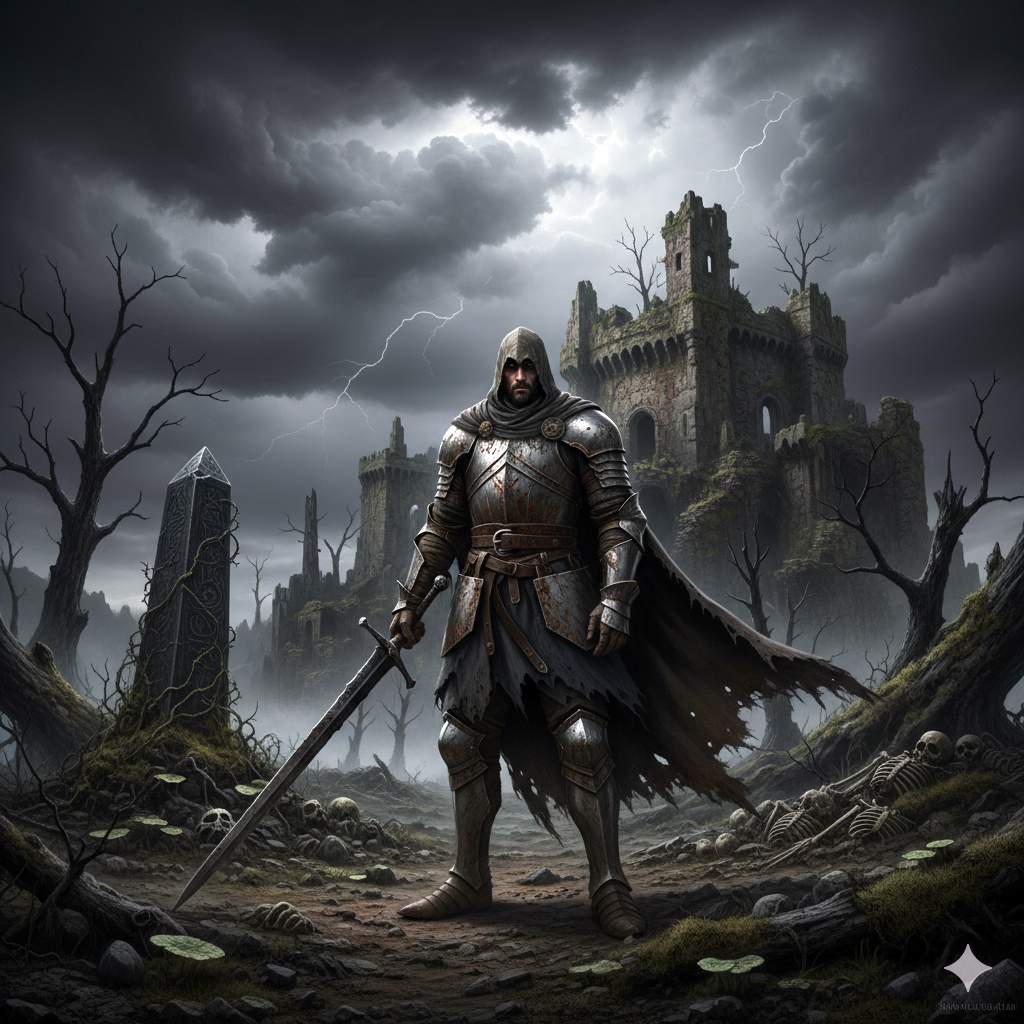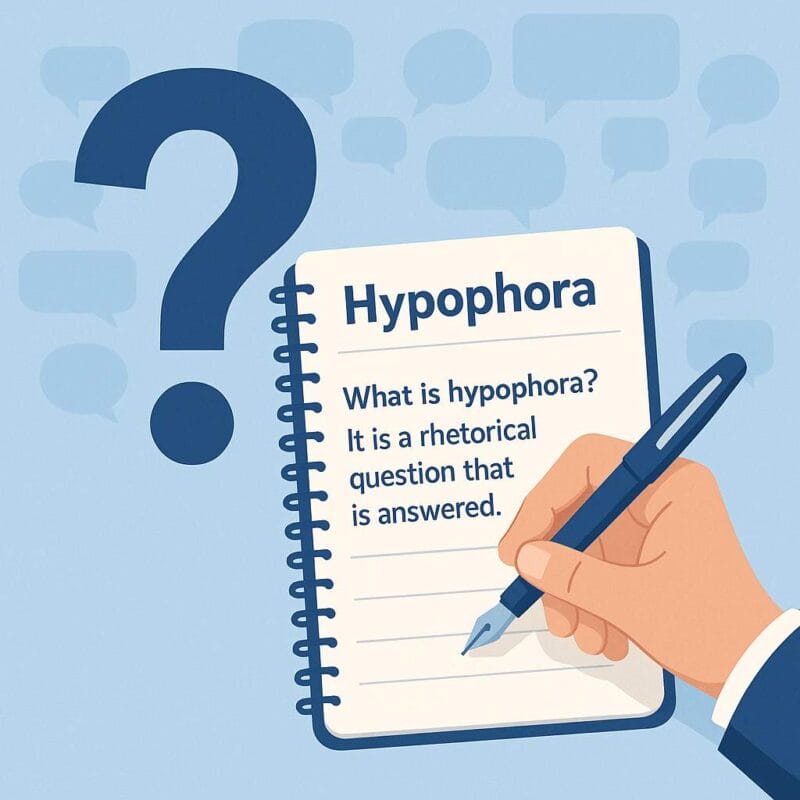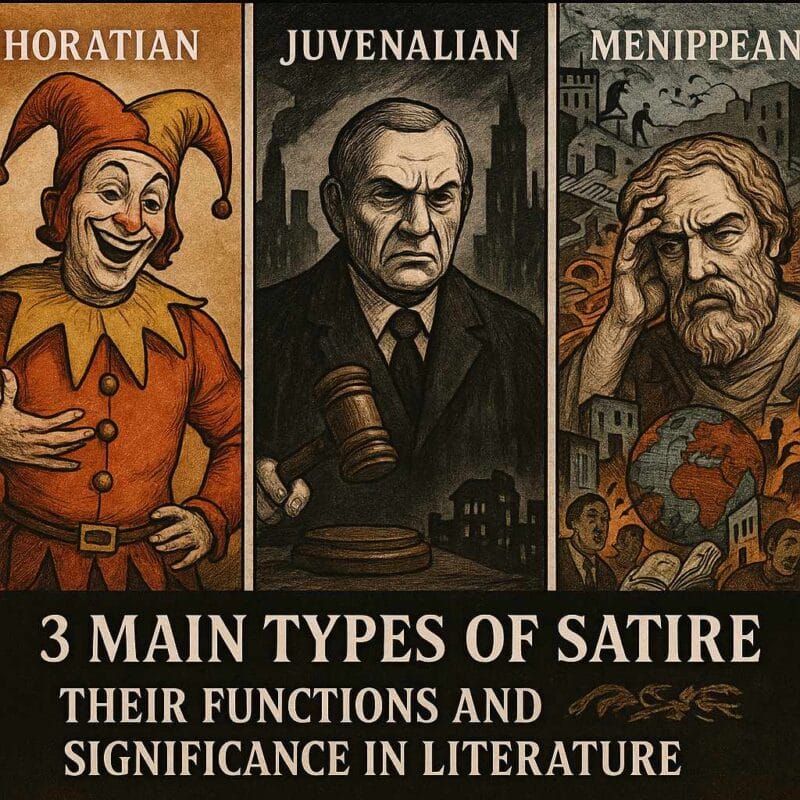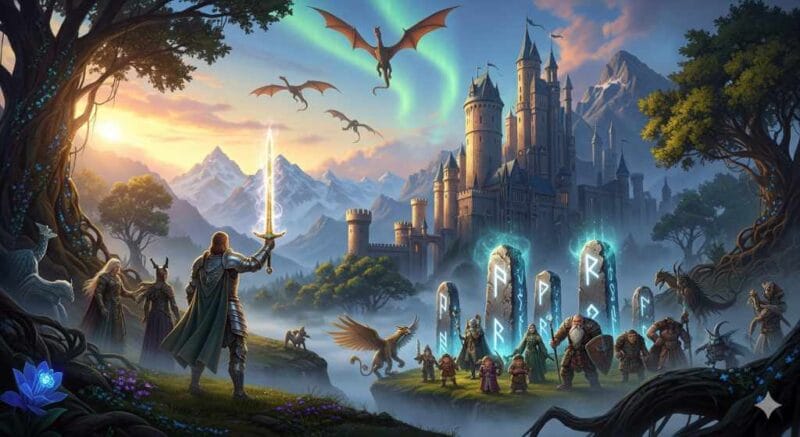In recent decades, a distinct current within fantasy fiction has emerged, one that trades the polished heroism of traditional epics for murkier struggles and compromised ideals. In these works, the grandeur of destiny gives way to blood-soaked battlefields, splintered loyalties, and worlds where moral certainty crumbles beneath the strain of survival.
The tone is unforgiving, the victories uncertain, and the characters bound by choices that reveal as much about human frailty as about courage. This darker vision of fantasy has transformed the genre’s moral imagination and expanded its reach, giving rise to what is now known as grimdark fantasy.
Defining Grimdark Fantasy
The term “grimdark fantasy” refers to a sub-genre of fantasy fiction characterized by bleak tone, rampant violence and morally ambiguous characters. However, it is not simply about adding more gore or darkness; it emphasizes dissolution of moral clarity, the ambiguous cost of power and the fragility of hope.
Origins and Evolution of the Term
The term finds its roots in the tagline of the tabletop game Warhammer 40,000: “In the grim darkness of the far future there is only war.” From that origin the term migrated into fantasy literature to describe stories that rejected idealised heroism and clean moral binaries.
Over time, writers such as Joe Abercrombie and Mark Lawrence, along with earlier influences like Glen Cook, established a recognizable set of conventions. As the genre matured, critics and readers debated whether grimdark is itself a genre or simply a descriptive label.
Key Features of Grimdark Fantasy Novels
Under the banner of grimdark fantasy novels, there are certain patterns that tend to recur:
- Flawed or anti-hero protagonists. Heroes may fail, betray, or act out of self-interest. The journey is seldom one of redemption in a traditional sense. For example, in Lawrence’s Prince of Thorns (2011), the protagonist Jorg Ancrath is a ruthless young prince consumed by vengeance.
- Corrupt power structures. Kings, empires and institutions are depicted as self-serving or failing rather than noble. The world-system itself often works against the individual.
- Brutality and sacrifice. Violence, war and ruthless choices drive narrative tension—morality is tested rather than assured.
- Ambiguity of hope. A sense that the world may not be saved; the goal may not be “victory” in a hero’s-journey sense, but survival, compromise or power attainment.
- Realism of consequences. Actions carry enduring consequences: warfare affects civilians, magic demands a price, and characters bear scars (literal or psychological). This lends a sense of grounded stakes despite the fantasy setting.
How to Approach Reading Grimdark Fantasy Novels
If you’re exploring grimdark fantasy novels, here are a few practical pointers:
- Be prepared for discomfort. These stories often include violence, psychological trauma and bleak outcomes.
- Don’t expect neat resolutions. Many arcs end with ambiguous victory or pyrrhic success rather than simple triumph.
- Focus on character arcs, not just plot. Because moral ambiguity is central, the appeal lies in how characters behave under pressure.
- Mind your expectations. If you prefer tales about “noble hero wins,” start with works that balance darkness and hope; but if you want darker shades of fantasy, this genre will deliver.
- Start with accessible examples. Abercrombie’s The Blade Itself (2006) and Lawrence’s Prince of Thorns are often cited as entry-points.
Common Misconceptions About the Genre
Two major misunderstandings circulate around grimdark fantasy. First, that grimdark simply equals “lots of violence.” Violence is present, but the essence lies in the thematic structure: the darkness arises from power’s cost, systemic deterioration, and failed morality, not just gore. Second, some equate grimdark with “anti-fantasy” or dismiss it as nihilistic waste. While some works lean very dark, many authors still engage with values, even if they complicate them, so painting all grimdark as hopeless is reductive.
Why the Genre Matters
Grimdark fantasy matters because it offers a counter-point to more conventional fantasy: it forces us to engage with power, suffering and failure in ways that simpler heroic tales may avoid. For readers who relish morally grey characters, unpredictable outcomes and worlds that feel rawer, grimdark fantasy novels deliver a different kind of emotional and intellectual engagement.
Furthermore, grimdark has influenced broader fantasy publishing: as genre readers matured, publishers sought works with higher stakes, darker flavor, and subversion of tropes. The emergence of grimdark has thus impacted trends in fantasy fiction, leading to greater nuance in characterization and worldbuilding.
Further Reading
Grimdark on Wikipedia
What grimdark means and why it matters by mattlarkinbooks.com
Thinking out loud about grimdark by Aidan Moher, Medium




